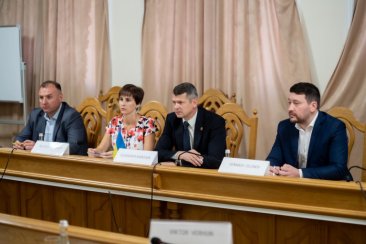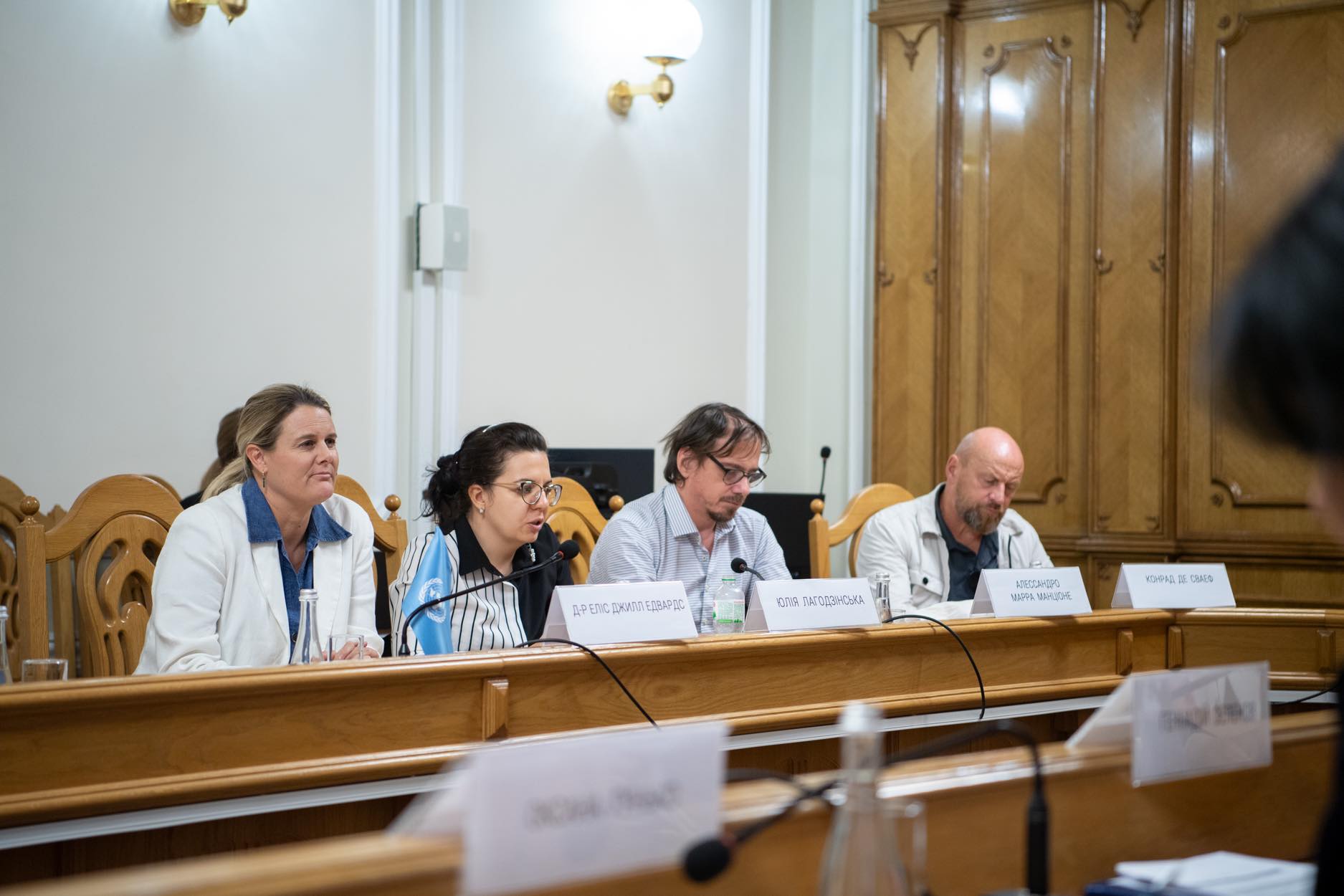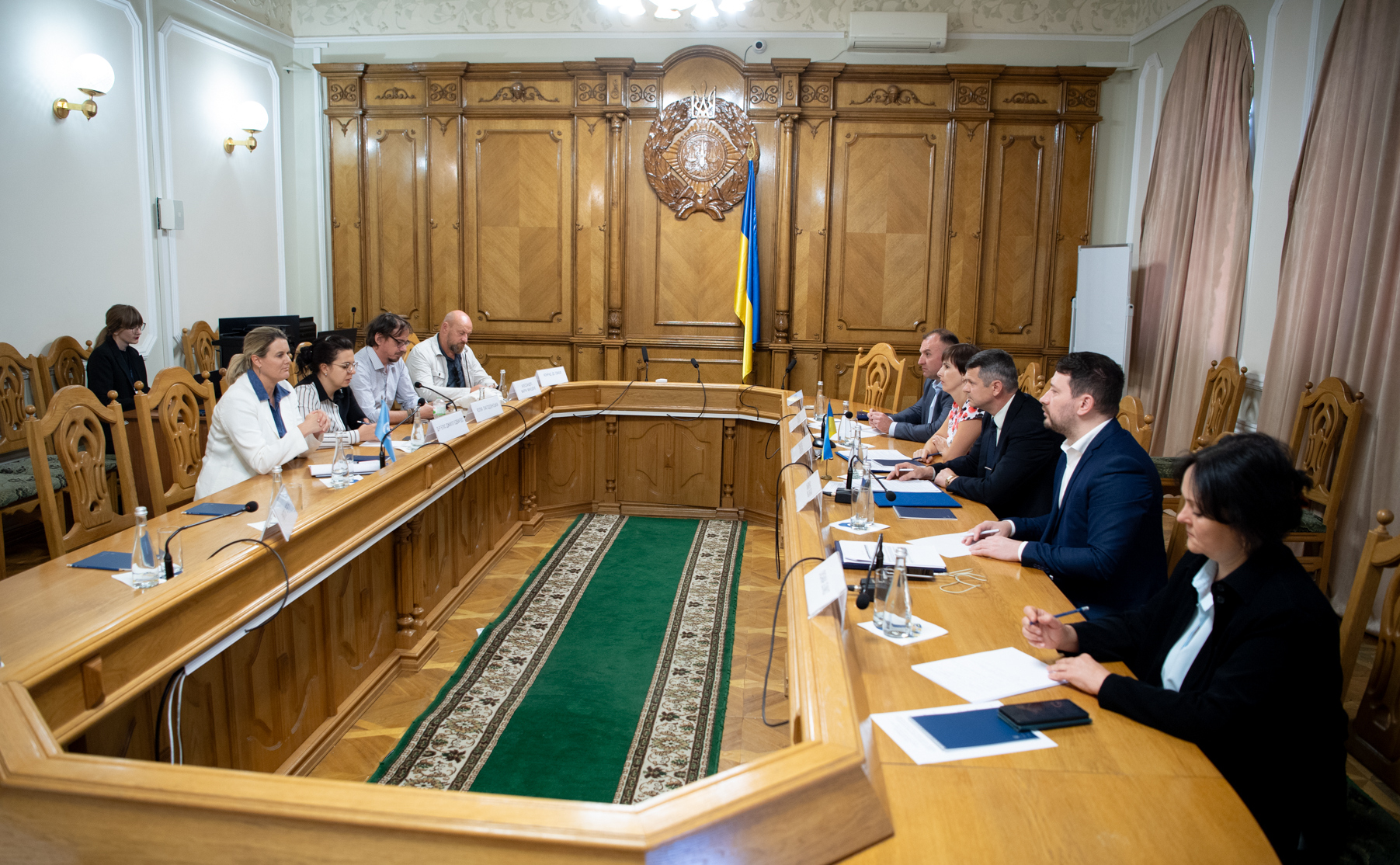Contact center of the Ukrainian Judiciary 044 207-35-46

Ukraine continues to receive information, videos and eyewitness accounts of the Russian military torturing Ukrainian prisoners of war. And it is not only military personnel who are being tortured, but also civilians. Mutilation, electric shocks, beatings, dog baiting, suffocation, mock executions, death threats - these and other methods of torture, abuse and pressure are used by the Russian military with the permission of the Russian authorities. All this leads to mutilation, damage to internal organs, psychological disorders and mental breakdowns in torture victims. Torture is a war crime and the systematic use of torture is a crime against humanity.
This was emphasised by Oleksandr Marchuk, President of the Criminal Cassation Court of the Supreme Court, at a meeting with Alice Jill Edwards, UN Special Rapporteur on Torture and Other Cruel, Inhuman or Degrading Treatment or Punishment.
The participants of the meeting also included Alessandro Marra Manzione, Human Rights Officer of the Office of the UN High Commissioner for Human Rights, and Koenraad De Swaef, Security Officer of the Office; Nataliia Antoniuk, Secretary of the First Judicial Chamber of the Criminal Cassation Court within the Supreme Court; Hennadii Zelenov, Head of the Division for Analytical Assistance to the Cassation Courts and the Grand Chamber of the Supreme Court of the Department for Analytical and Legal Work; Mykhailo Vainahii, Head of the Section for Organisational and Protocol Support of Court Events of the Division Providing Operations Support to the President and Vice-President of the Criminal Cassation Court of the Supreme Court, and Oksana Hunko, Chief Specialist of the Division for International Legal Cooperation of the Supreme Court.
Oleksandr Marchuk noted that law enforcement and investigative authorities were taking all possible measures to record crimes and collect evidence in order to bring the perpetrators to justice. The Prosecutor General's Office has submitted almost 200 criminal proceedings on torture to the courts of first instance.
"The behaviour of the Russian invaders towards the Ukrainians is not only a physical fight, but actually a beating of a downed man who is bleeding. The Russian military is committing various war crimes in the presence or with the knowledge of those in a position to put an end to these atrocities. This unnatural behaviour is a threat not only to Ukrainians. This is a tumour that must be removed as a matter of urgency in order to prevent it from spreading and, more importantly, to prevent it from reappearing in the future," said the President of the Criminal Cassation Court of the Supreme Court. He is convinced that unpunished evil is widespread evil.
The speaker thanked partners and the international community for standing with Ukraine in these difficult times. The assistance provided contributes to the Ukrainians' ability to repel the enemy. Helping to document crimes is also important to bring the perpetrators to justice and ensure that good prevails over evil.

Alice Jill Edwards thanked for organising the meeting. She noted that her visit to Ukraine focused on the procedures and practices for investigating and prosecuting crimes of torture and other ill-treatment committed in the context of the armed conflict, as well as the treatment and conditions of detention of war crimes suspects and prisoners of war.
The speaker noted that she had met with representatives of civil society, government agencies and torture survivors in Ukraine. She also visited places of detention of Russian military prisoners and found that their conditions of detention met international standards.
Alice Jill Edwards said the challenges facing Ukraine were unprecedented. Importantly, many of the measures to address these challenges are being taken in 'real time' - while the invasion is underway. She believes that justice delayed is justice denied. What is characteristic of Ukraine - and, according to the speaker, unique - is that crimes are being investigated now, and the competent authorities are not waiting for the end of the armed conflict (as was the case in other countries).
The UN Special Rapporteur on Torture asked the representatives of the Supreme Court to share the priority challenges they face in their daily work, which could be eliminated to speed up the process of criminal proceedings.
Responding to this request, Nataliia Antoniuk drew attention to several aspects. She pointed out the complexity of verifying the proof of torture endured by Ukrainian soldiers after their release from captivity. In particular, the speaker noted the difficulties in identifying the perpetrators of such torture. Even in cases where it is possible to identify the torturer, when doctors establish the fact of torture, the process of bringing the perpetrator to justice faces the problem of the absence of the accused in Ukraine.

The Supreme Court judge noted that when considering war-related cases under the special procedure in absentia, there were difficulties in informing the accused about the trial. This has been pointed out by both judges and some international organisations. Unfortunately, however, none of the representatives of international organisations make any concrete proposals for improving this process. But such constructive suggestions could help the Ukrainian judiciary improve the process of informing the accused.
Putting a person convicted of war crimes on the wanted list is another problem, according to Nataliia Antoniuk. There are certain gaps in the Interpol wanted list mechanism, which means that even if a Ukrainian court issues a verdict, the accused cannot be placed on the wanted list. In fact, a war criminal can go unpunished.
In addition to the challenges of dealing with military criminal proceedings, Ukraine's judicial system faces systemic problems. They were highlighted by Oleksandr Marchuk. He spoke about the problem of understaffing in the courts, the challenges of restoring justice in regions where court buildings had been destroyed or damaged as a result of Russian attacks, and the challenges of access to justice. Despite this, he assured that the Ukrainian courts were continuing to work and consider cases, and that the number of cases coming before the courts had already reached pre-war levels. Ukrainian judges, investigators and prosecutors continue to improve their skills in investigating and prosecuting war crimes. After all, identifying the perpetrators and ensuring a fair trial is one of the key tasks of the criminal justice system.